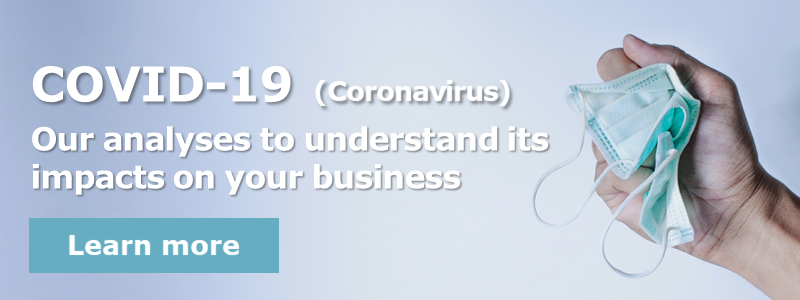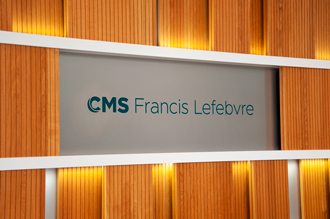All you need to know about the strategy and operational procedures adopted by the Labour Inspectorate in the context of lifting lockdown and the revival of economic activity.
As part of the general process of lifting lockdown and gradual revival of economic activity, an instruction from the French General Labour Directorate (DGT – Direction Générale du Travail), dated 19 May 2020 sets out the main action focuses for the Regional Companies, Competition, Consumption, Labour and Employment Directorates (Direcctes) and the Labour Inspectorate in the field of workplace relations and working conditions. The objectives assigned to agents essentially relate to support, information and control of companies.
1. Helping companies prepare for and implement the lifting of lockdown
The Direcctes must provide all players with information, advice and support concerning the legal framework applicable to the lifting of lockdown.
It is therefore up to them to inform companies and encourage the dissemination of sectoral guides and national protocols (protocol for lifting lockdown to ensure employees’ health and safety, remote working Q&A) to inform employers about measures to be implemented to meet their safety obligation.
According to the DGT, social dialogue remains the best means of disseminating issues relating to the return to work. It has therefore asked Direcctes to liaise with social partners in each region and organise a monthly meeting of the Observatory for Support and Analysis of Social Dialogue and Collective Bargaining (Observatoire d'Appui et d'Analyse du Dialogue Social et de la Négociation Collective) with a view to identifying bottlenecks, publicising exemplary actions carried out in companies and regions and defining measures to support VSEs and SMEs. The Direcctes must also encourage and support social dialogue, both within companies – by informing them about changes to rules for consultation of the Social and Economic Committee (CSE – Comité Social et Economique) applicable during the crisis period – as well as at sectoral and regional level.
Finally, the instruction stresses the need to ensure that information services have a high capacity to respond to users' questions during this period.
2. Ensuring a resumption of economic activity in safety and in compliance with the French Labour Code
The basic responsibility of the Labour Inspectorate is to ensure the effectiveness of measures taken by companies to protect employees from the risk of contamination from Covid-19 and to safeguard fundamental human rights in the workplace. The lifting of lockdown therefore requires inspectors to visit companies and worksites to check what is actually happening in employees’ workplaces and initiate any legal proceedings necessary as a result of their findings.
Priority should therefore be given to reports concerning:
- breaches of Covid-19 risk protection measures, whether or not the report is part of an alert procedure;
- serious or fatal workplace accidents;
- harm to workers’ physical or psychological well-being or to their dignity (sexual harassment, mistreatment of young workers, situation of serious danger, etc.);
- infringement of fundamental rights (inhuman treatment, insalubrious accommodation, etc.);
- non-payment of wages;
- short-time working fraud reported by “economic change” agents, employees or their representatives, the latter being handled in the framework of a specific action plan (https://cms.law/fr/fra/news-information/le-plan-de-controle-a-posteriori-de-l-activite-partielle-par-l-administration).
To meet this objective, the DGT is suspending the national action plan during the health crisis and asking each Direccte to draw up a roadmap defining the actions to be carried out.
3. Particular attention paid to certain procedures
Agents should pay particular attention to three types of procedures.
Requests for authorisation to terminate or transfer employment contracts of protected employees
These requests must be examined in accordance with the instructions of 17 March and 7 April 2020, i.e. by prioritising written comments and email exchanges with the parties to the proceedings (https://cms.law/fr/fra/news-information/coronavirus-quatre-circulaires-de-la-direction-generale-du-travail-des-16-et-17-mars-2020-apportent-des-precisions). Exceptionally, a face-to-face interview may be organised if absolutely necessary, in compliance with barrier measures and the physical distancing rules.
Contractual termination
The countdown to deadlines for approval of contractual termination resumed from 26 April 2020.
In relation to requests for approval of contractual termination submitted before this date, and in order not to penalise companies and employees wishing to terminate the employment contract by mutual agreement, agents are asked to respond favourably to requests for an explicit approval decision before expiry of the deadline periods which resumed on 26 April 2020, after which implicit approval may be granted. However, in the event that the termination date entered on the form has already passed, the authorities may ask the parties to modify the form so that the termination occurs at the earliest on the day after the date on which the approval decision is granted. That date is fixed by mutual agreement between the authorities and the parties.
Investigation of employee savings agreements
The six-month or four-month period, from the filing of an optional/mandatory profit-sharing agreement or the regulations of an employee savings scheme, available to the authorities to request the withdrawal or amendment of illegal provisions, are no longer subject to deadline suspension or postponement measures since 26 April 2020 (decree No. 2020-471 of 24 April 2020, Official Journal of 25 April 2020).
It is therefore up to the competent administrative authorities to work with the URSSAF to define electronic means of examining agreements relating to employee savings plans and notifying any observations to the company.
Processes for electing members of the CSE delegation
Finally, in relation to processes for electing the CSE which have been suspended or postponed pursuant to Ordinance No. 2020-389 of 1 April 2020, if 2020 is the last year in the electoral cycle allowing the representivity of trade union bodies to be measured then the Labour Inspectorate shall ensure that the process has been initiated or resumed at the end of the suspension or postponement period. These include:
- firstly, electoral process in progress on 3 April 2020, which were suspended from 12 March to 31 August 2020, and which will resume during on 1 September 2020;
secondly, electoral processes which should have been initiated between 3 April and 31 August 2020 and which are due to initiated on a date chosen freely by the employer between 24 May and 31 August 2020, subject to the date chosen by the employer being no earlier than the date on which it is obliged to initiate said process.
Report: impacts of Covid-19 (Coronavirus)
Our law firm offers you its legal assistance to address all the impacts of Covid-19 (Coronavirus) on your business. Read our dedicated report below.
For more information on our law firm:
Our law firm is a leading international business law firm. Its deep roots, unique positioning and highly recognised expertise enables it to deliver innovative, high value-added solutions in all areas of the law.












Social Media cookies collect information about you sharing information from our website via social media tools, or analytics to understand your browsing between social media tools or our Social Media campaigns and our own websites. We do this to optimise the mix of channels to provide you with our content. Details concerning the tools in use are in our privacy policy.